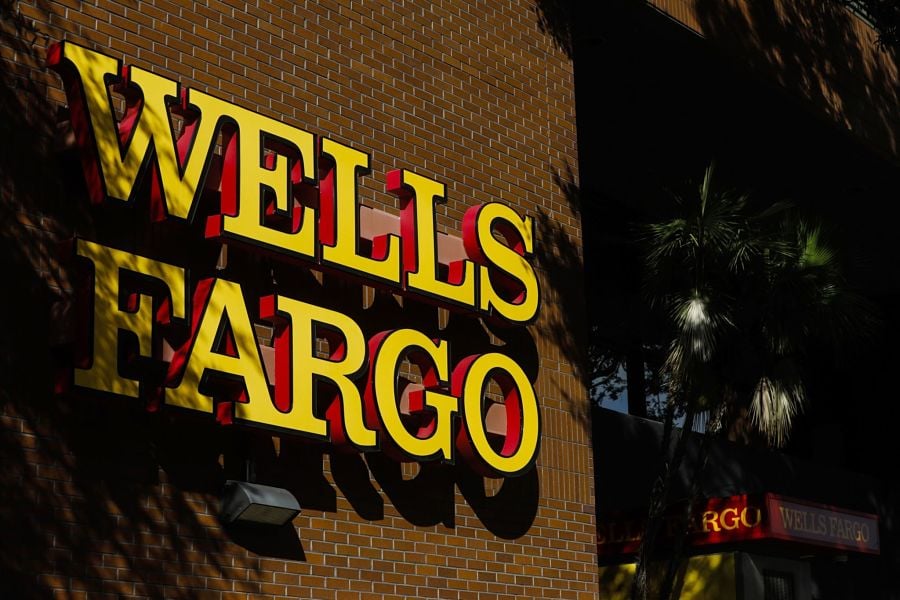

The Department of Labor ordered Wells Fargo to pay $145 million to settle charges that it overpaid for company stock in its employees’ retirement plan, the agency announced Monday.
In a statement, the DOL said it reached a settlement with Wells Fargo & Co., Wells Fargo Bank and Great Banc Trust Co., the trustee for the plan, that would return $131.8 million to plan participants and impose a $13.2 million penalty on Wells Fargo.
Wells Fargo and Great Banc caused 401(k) plan participants to pay between $1,033 and $1,090 per share for company preferred stock between 2013 and 2018, the agency found in an investigation by its Employee Benefits Security Administration. The stock, which was designed for the retirement plan, converted to $1,000 per share in Wells Fargo common stock when deposited in plan participants’ accounts.
The retirement plan borrowed money from Wells Fargo to purchase the preferred stock. Wells Fargo then used the dividends paid on the preferred shares to repay the stock purchase loans and to defray obligations to make contributions to the plan, the DOL said in a statement. The transactions were designed to pay more per share than plan participants would receive.
“Our investigation found those responsible for Wells Fargo’s 401(k) plan paid more than fair market value for employer stock and, by doing so, betrayed the trust of the plan’s current and future retirees,” Secretary of Labor Marty Walsh said in the statement. “Today’s settlement shows the Department of Labor will act when we find retirement assets are misused and benefit plans suffer.”
Wells Fargo and Great Banc neither admitted or denied the DOL’s allegations. Although Wells Fargo settled with the DOL, it disputed the charges.
“The company strongly disagrees with the DOL’s allegations and believes it followed applicable laws in conducting the transactions,” Wells Fargo said in a statement. “Though the company disagrees with the DOL’s allegations and has not conducted these transactions since 2018, Wells Fargo believes resolving this legacy matter is in the best interest of the company.”
The DOL enforcement action on its 401(k) account is the result of the latest regulatory trouble for Wells Fargo. The firm has been in the federal government's crosshairs since September 2016, when the bank was fined $185 million for creating millions of unauthorized accounts in the names of customers without their consent.
In the case focusing on its retirement plan, Wells Fargo maintains it did nothing wrong.
“All 401(k) plan participants received all matching and profit-sharing contributions due to them,” the firm said. “An independent third-party approved the transactions on behalf of the 401(k) plan and confirmed that the 401(k) plan did not pay more than fair market value for the company stock at issue.”
But the DOL is using the case to illustrate its scrutiny of company retirement plans using the firm’s stock.
“The Employee Retirement Income Security Act requires, and participants’ retirement security demands, that when retirement plans purchase employer stock, they pay no more than fair market value,” Acting Assistant Secretary for Employee Benefits Security Ali Khawar said in the statement. “This settlement demonstrates that the Employee Benefits Security Administration will not allow participants to be harmed by ERISA plans that overpay for plan assets.”

Integrated Partners is adding a mother-son tandem to its network in Missouri as Kestra onboards a father-son advisor duo from UBS.

Futures indicate stocks will build on Tuesday's rally.

Cost of living still tops concerns about negative impacts on personal finances

Financial advisors remain vital allies even as DIY investing grows

A trade deal would mean significant cut in tariffs but 'it wont be zero'.
RIAs face rising regulatory pressure in 2025. Forward-looking firms are responding with embedded technology, not more paperwork.
As inheritances are set to reshape client portfolios and next-gen heirs demand digital-first experiences, firms are retooling their wealth tech stacks and succession models in real time.
